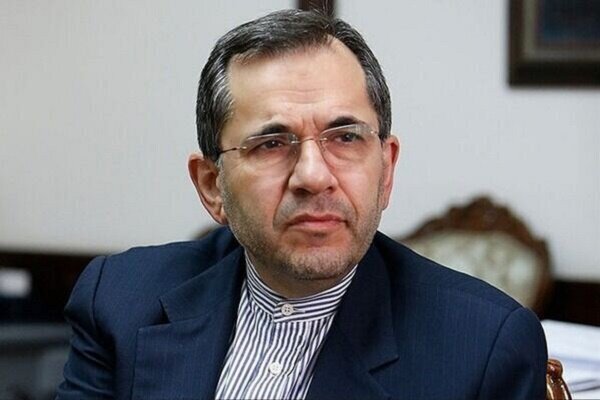INSTEX proved ineffective in the past two years: Iran’s UN envoy

TEHRAN – Majid Takht-Ravanchi, Iran’s ambassador to the United Nations, has said that INSTEX, a mechanism aimed at facilitating legitimate trade with Iran, has proved ineffective over the past two years.
Takht-Ravanchi made the remarks on Saturday in reaction to the UN secretary-general’s 10th report on the implementation of the Security Council Resolution 2231, which endorsed the Iran nuclear agreement, officially called the Joint Comprehensive Plan of Action (JCPOA).
“The system must prove its efficiency after two years,” he said of INSTEX, according to Press TV.
INSTEX (the Instrument in Support of Trade Exchanges) has been designed by the European Union to facilitate legitimate trade with Tehran. It was introduced on January 31, 2019, by France, Germany, and Britain, the three European countries party to the nuclear deal.
INSTEX was supposed to be a financial channel and a special mechanism for transferring money in spite of U.S. sanctions on Iran. Its objective was to facilitate Iran’s transactions with European companies. Iran says the mechanism has failed to meet its goal.
After Europe failed to protect Iran’s interests under the JCPOA, Iran began to reduce its nuclear commitments on May 8, 2019 – exactly a year after President Donald Trump withdrew the United States from the nuclear deal and imposed harsh sanctions on Iran.
Takht-Ravanchi said Iran’s reduction of its nuclear commitments was a result of the other parties’ violation of the deal and was within Iran’s rights under the JCPOA.
The ambassador’s remarks came after UN Secretary-General Antonio Guterres called on all UN member states to engage in trade with Iran, highlighting the need for preserving the JCPOA.
In comments on Friday, Guterres stressed “the importance of initiatives in support of trade and economic relations with the Islamic Republic of Iran, especially during the current economic and health challenges posed by the coronavirus disease (COVID 19) pandemic.”
The UN chief underscored the “important contribution of other member states to preserving the Plan and continue to encourage them to work effectively with the participants in the Plan towards creating the conditions necessary for their economic operators to engage in trade with the Islamic Republic of Iran in accordance with resolution 2231 (2015).”
Guterres said the UN Security Council endorsed the pact at the time and called upon all member states, regional organizations and international organizations to support its implementation.
For the past five years, the JCPOA has been largely viewed by the international community as a testament to the efficacy of multilateralism, diplomacy and dialogue and success in nuclear non-proliferation, he said.
“I have consistently believed that the Plan is the best way to ensure a comprehensive, long-term and proper solution to the Iranian nuclear issue, as well as to contribute to regional and international peace and security,” he added.
MH/PA
